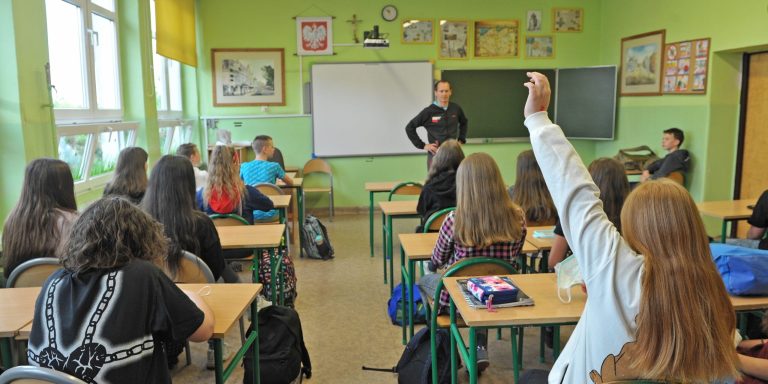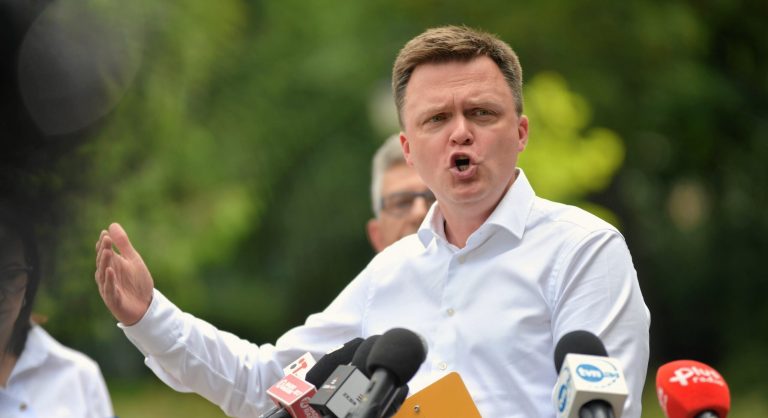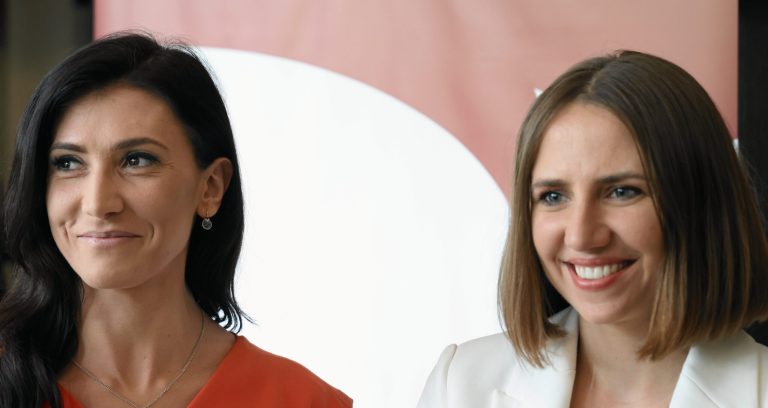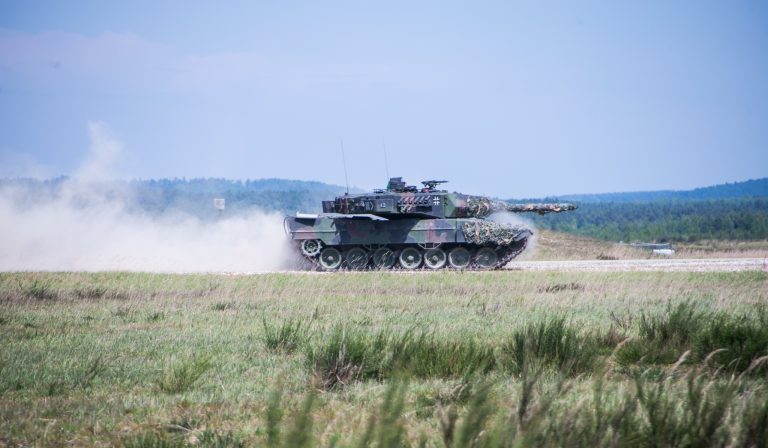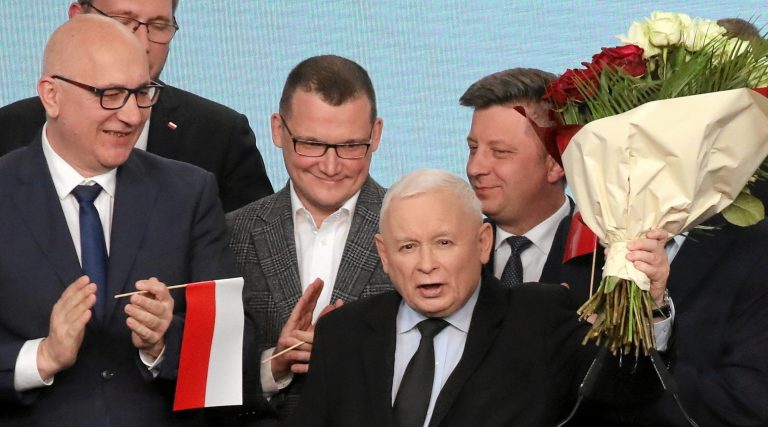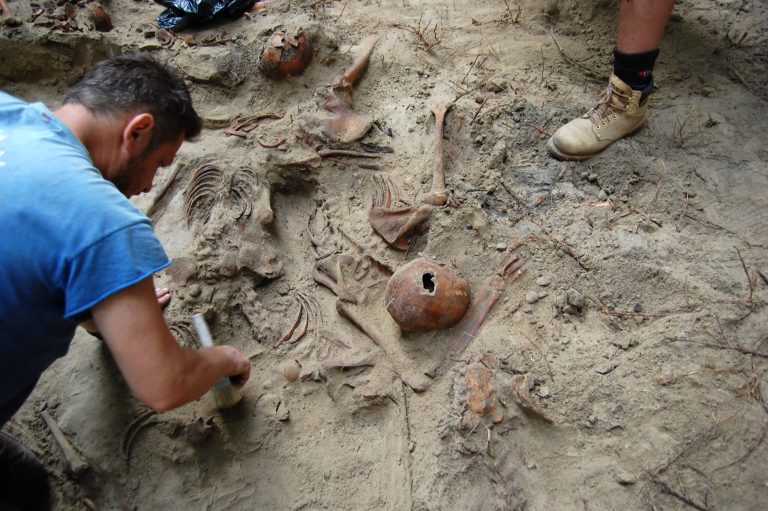Russians protest against Putin and Ukraine war in Poland
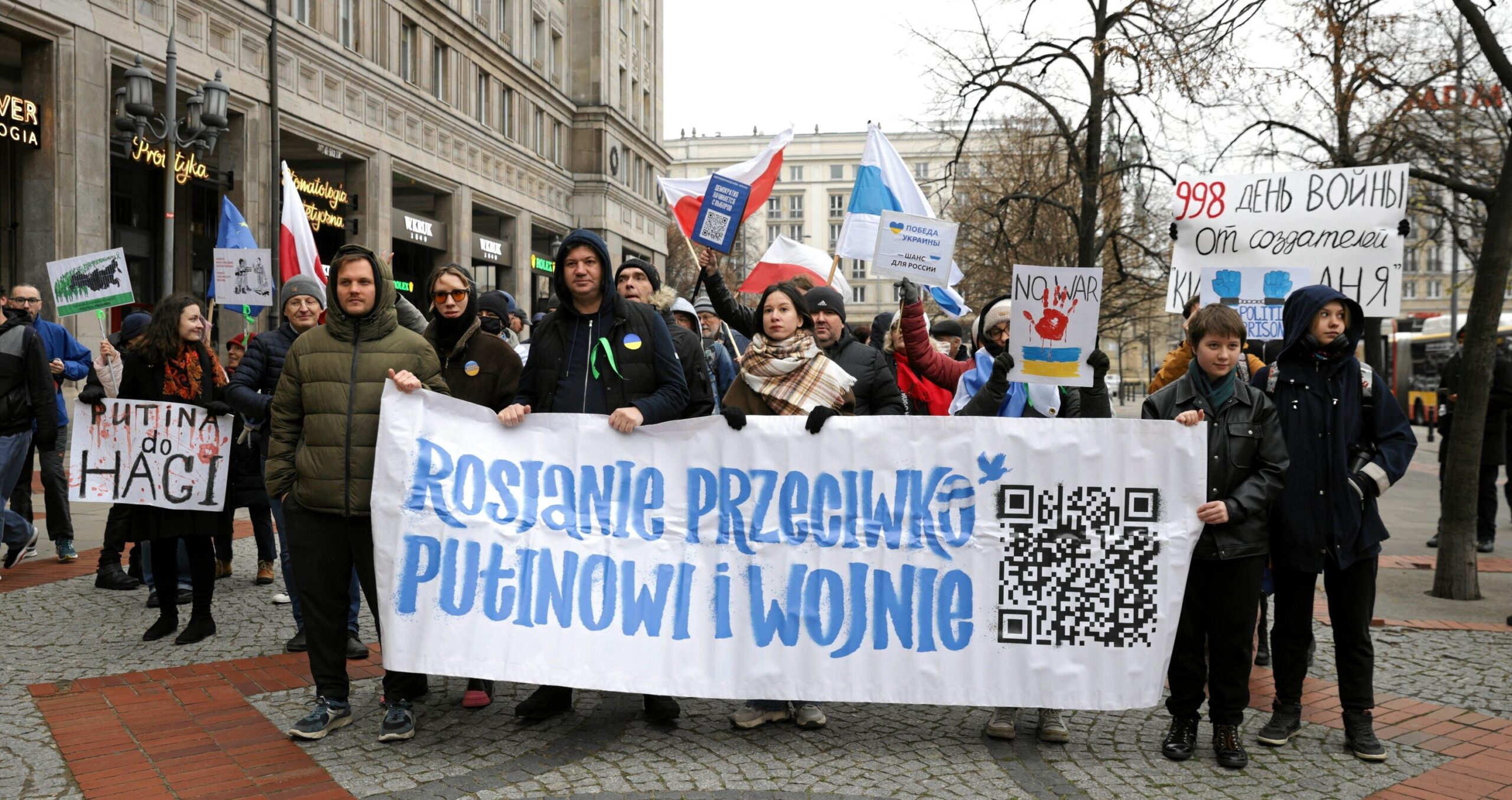
Keep our content free from ads and paywalls by making a donation to support our work!
Notes from Poland is run by a small editorial team and is published by an independent, non-profit foundation that is funded through donations from our readers. We cannot do what we do without your support.
Russians living in Poland have held protests in Warsaw and Kraków demanding the withdrawal of Russian troops from Ukraine, the release of political prisoners in Russia, and for Vladimir Putin to be put on trial.
A group marched through the Polish capital behind a sign saying, in Polish, “Russians against Putin and War”. They waved the white-blue-white flag of the Russian anti-war movement, as well as those of Poland and the European Union.
Other placards, in a mix of Polish, English and Russian, read “Putin to the Hague”, “Freedom for political prisoners in Russia”, and “No War”.
In Kraków, Poland’s second-largest city, the protesters marched through the Old Town displaying pictures of political prisoners currently being held in Russia.
Ulicami Warszawy przechodzi dzisiaj antywojenny marsz rosyjskiej diaspory.
Zebrani Rosjanie sprzeciwiają się wojnie, rządom Putina, a także wyrażają solidarność z polskim społeczeństwem w promowaniu wartości demokratycznych i tworzeniu bezpieczniejszej przyszłości pic.twitter.com/MOELxhklO0
— Biełsat (@Bielsat_pl) November 17, 2024
The protests were timed to coincide with others being held elsewhere to mark 1,000 days of Russia’s war in Ukraine, including a major rally in Berlin attended by prominent Russian opposition figures including Vladimir Kara-Murza, Ilya Yashin and Yulia Navalnaya, the wife of Alexei Navalny, who died in a Russian prison this year.
“We have different political beliefs, but we are united by our opposition to war and tyrannical governments that violate human rights and the principles of democracy,” wrote the organisers of the Warsaw event.
Among their demands are “the immediate withdrawal of Russian troops from Ukraine, including Donbas and Crimea”, and that “the state authorities of Russia be punished” for war crimes and for violating human rights in both Ukraine and Russia.
The organisers also told news website Onet before the protest that they “want to show that we are allies of Polish civil society in spreading democratic values and building a safe future together”.
Peace for Europe – Victory for Ukraine- Democracy for Russia
Rally of the Russian opposition right now in Berlin. Impressive crowd.
And no, it’s not just Putin‘s war. pic.twitter.com/kcrrpC2Aa4
— Ralf Fuecks (@fuecks) November 17, 2024
Poland’s most recent national census, carried out in 2021, found just under 16,000 Russians to be living in the country. Since the invasion of Ukraine, entry to Poland and the EU more broadly has been even more tightly restricted for Russians.
However, last year, Poland still issued almost 4,300 visas to Russian citizens. The current government, which took power in December 2023, has criticised its predecessor for being too lax regarding the entry of Russians.
By October this year, only 1,821 visas had been issued to Russians. The majority of them were classified as being for humanitarian reasons (452), repatriation (175), or for people who hold the so-called Pole’s Card (875), which can be claimed by ethnic Poles living in former Soviet states.
Since the invasion of Ukraine, Russians in Poland have held a number of protests against the war.
Russians living in Poland marched through the streets of Warsaw yesterday to protest against the invasion of Ukraine.
„Russia without Putin,” they chanted outside the Russian embassy https://t.co/0Cmyxa6VzR
— Notes from Poland 🇵🇱 (@notesfrompoland) June 13, 2022

Notes from Poland is run by a small editorial team and published by an independent, non-profit foundation that is funded through donations from our readers. We cannot do what we do without your support.
Main image credit: Adam Stepien / Agencja Wyborcza.pl

Daniel Tilles is editor-in-chief of Notes from Poland. He has written on Polish affairs for a wide range of publications, including Foreign Policy, POLITICO Europe, EUobserver and Dziennik Gazeta Prawna.

